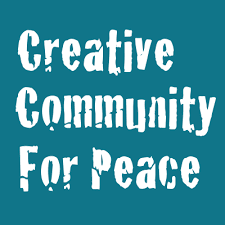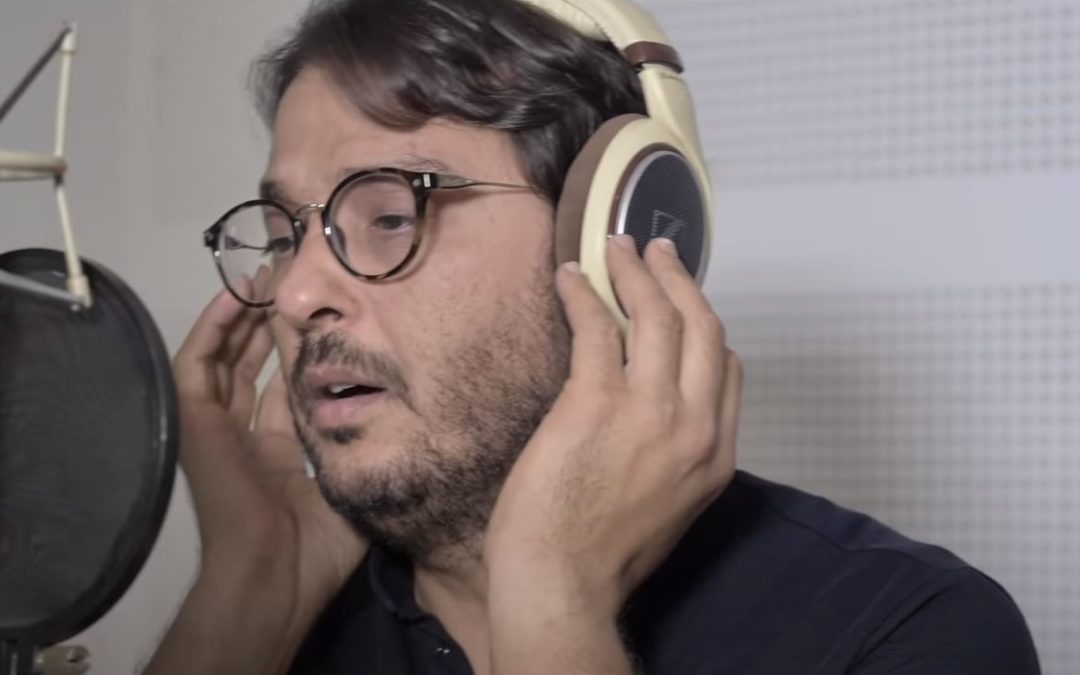If you’re not from Tunisia, you’ve probably never heard the name Noamane Chaari. But the lessons to be learned from his story have universal implications beyond the politics of any offending country. Sadly, his story is not unique. Chaari is one of many artists throughout the world who have been silenced and persecuted merely for exercising their right to creative expression.
Last month, Chaari, a well-known Tunisian vocalist and composer, released a song with Jewish-Israeli performer Ziv Yehezkel titled “Peace Among Neighbors.” The song was meant to inspire hope and encourage coexistence in a region fraught with tribal and religious animosity. Within a week of being posted on social media, the track had over 1.5 million views.
Unfortunately, Chaari was quickly met with fierce condemnation from journalists, politicians, and activists in Tunisia, who consider any act of “normalization” with Israelis, and in some cases, Jews, treasonous. His crime of interacting with the enemy was so offensive that there were widespread calls for the Tunisian court to prosecute and even execute. Subsequently, Chaari and all members of his band were fired from their jobs at Tunisian Channel One. Chaari was also boycotted by the Tunisian Syndicate for the Musical Professions, deemed a “traitor” by the local branch of the Boycott, Divest, and Sanctions (BDS) movement against Israel, and abandoned by many of the musicians he had prior relationships with. Currently, Chaari faces daily death threats and requires a personal security guard. He has been virtually ostracized from Tunisian society and is now unable to earn a living.
Creative Community for Peace (CCFP) regularly works with international artists and entertainers harassed and bullied by activists from the BDS movement. In some cases, BDS activists threaten physical violence, as was the case with Lionel Messi, Sir Paul McCartney, and others. These activists masquerade as champions for human rights. Yet their behavior is eerily similar to authoritarian regimes that instill fear and obedience in their people. Sometimes the two work in tandem.
Just last week, an Egyptian court brought a criminal case against prominent Egyptian singer and actor Mohamed Ramadan, charging him with causing “offense to the Egyptian people” after photos emerged on social media of him merely posing with Israeli celebrities in the United Arab Emirates. In turn, the BDS movement called for Ramadan to be suspended from the Syndicate of Egyptian Artists (Syndicate), and his performances are to be boycotted until he apologizes for promoting “normalization” with Israelis. The Syndicate has since heeded the BDS call and temporarily suspended Ramadan’s membership.
From Communist China and the theocratic Middle East to Western academia halls, where BDS activists flourish, there has been a continued, even alarming trend of silencing, intimidating, and persecuting artists.
In Iran, artists, entertainers, and athletes are regularly arrested, tortured, jailed, and even executed.
This past year, Iranian actress Taraneh Alidoosti, one of Iran’s most popular and successful actresses, was given a five-month prison sentence for opposing law enforcement on Twitter and supporting women who refuse to wear the legally mandated hijab. Similarly, filmmaker Mohammad Rasoulof was sentenced to prison for producing “propaganda against the system,” while star wrestler Navid Akfari was executed for protesting against the regime back in January. That the world has mostly turned a blind eye to these horrifying incidents of state-sanctioned oppression and murder should be troubling to everyone.
In Turkey, Kurdish pop artist Azad Bedran was arrested and sentenced to over three years in prison for allegedly making a video that was “promoting terrorism.” While Ezhel, a well-known Turkish rapper, was arrested for lyrics that “promote drug use,” and the Turkish singer and actress Zuhal Olcay recently served time in prison for “insulting the President.” Additionally, over 200 songs have been banned by state-run media. In a country where more journalists are jailed every year than anywhere else, it isn’t surprising that these stories don’t make their way into mainstream western media.
In the Gaza Strip, artists are routinely harassed, censored, and persecuted for any form of expression perceived as anti-government. Hamas, the internationally recognized terrorist organization that controls Gaza, has a documented record of arresting and detaining artists. This past March, cartoonist Ismail Al-Bozom was arrested for drawings and social media posts critical of Hamas. After receiving “inhumane treatment” during his detention, he was released but forced to sign an agreement to attend any summons he may receive.
As previously mentioned, Egypt has also seen a considerable decline in artistic freedom since Abdel Fatah El Sisi’s takeover of the country. Last May, 24-year-old filmmaker Shady Habash died in an Egyptian prison where he had been held in pre-trial detention for more than two years on charges of “spreading false news” and “joining a banned organization” relating to a music video that mocked the President. Producer and filmmaker Moataz Abdul Wahab was also recently detained on terrorism charges because he had sold his documentary films to Al Jazeera, the Qatari-owned media outlet. In June, belly dancer Sama Al Masri was similarly sentenced to three years in prison on charges of inciting debauchery and violating society’s values. Additionally, there is an alarming number of cases in which the Egyptian government has arrested TikTok influencers for violating “family values” on social media.
Just as crushing dissent is the hallmark of an oppressive regime, the curtailing of artistic freedom is evidence of repression and illiberalism. Yet rarely do we see these stories make international news, let alone appear in the local press, where it’s too dangerous to report such events.
Chaari never considered himself a political person. “The political aspect of normalization does not interest me,” he told the local press in Arabic. “Artists believe in forming ties with people, regardless of their religion and nationality.” Unfortunately, this enlightened viewpoint is lost on those blinded by partisan outrage. No matter that Chaari has performed in Ramallah to a crowd of Palestinians and in Arab-Israeli villages, his courageous message of unity between Muslims and Jews must be censored at all costs.
The haters have largely drowned out the few entertainers who have come to Chaari’s defense. Tunisian pop stars such as Bassam Farza, Emad Aziz, and Alia Balaid have publicly expressed solidarity with Chaari, arguing that art should be kept separate from politics. These brave artists understand that censorship of speech and expression is antithetical to effecting positive social change and progress. Creativity is the hallmark of a healthy society, and principled communities are responsible communities.
It is imperative that fellow artists in democratic countries seek out these stories that the national media pay little attention to and amplify the voices of those in peril for using theirs.
By Emily Schrader and Karys R. Oschin
Karys R. Oschin is the manager of strategic research and writing at Creative Community for Peace. Emily Schrader is the CEO of Social Lite Creative LLC.
PHOTO Credit: https://www.memri.org/reports/tunisian-singer-noamane-chaari-faces-threats-accusations-treason-sanctions-performing-duet

